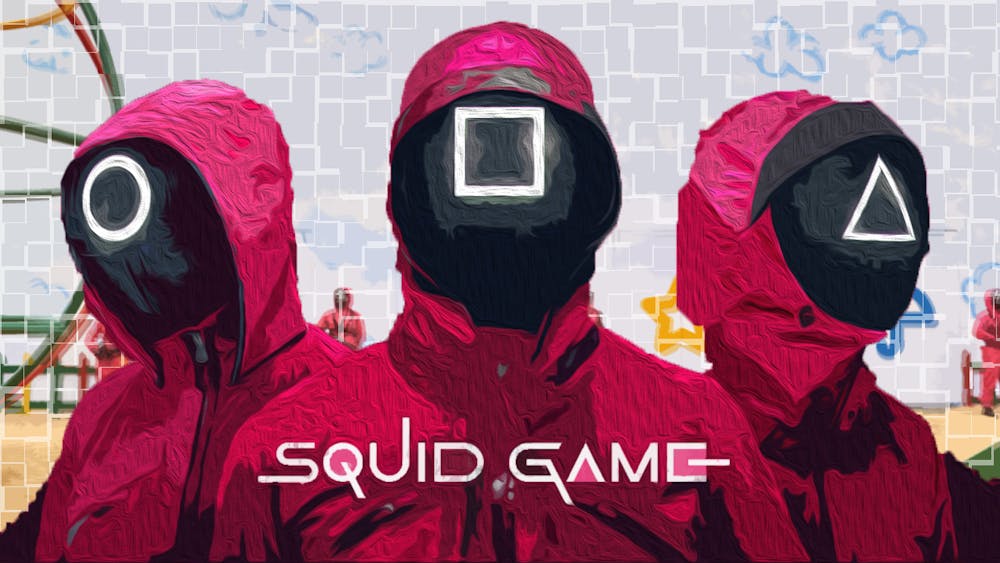If you've been browsing Netflix or social media lately, chances are you have seen clips or promotions for “Squid Game,” a Korean drama starring actors HoYeon Jung, Lee Jung-jae and Gong Yoo.
It has quickly become Netflix’s number one ranked show and the most-watched show ever on the platform, beating out “Bridgerton” by over 29 million views.
The show follows a group of central characters whose life circumstances have forced them to be in extremely severe debt or desperate need of money. They get invitations to come play in a game, where the grand prize is initially worth 40 million dollars and increases every time a player gets eliminated.
With nowhere else to turn, the characters all accept the offer and are taken to a facility run by unknown guards in pink jumpsuits with varying shapes on their masks. They are forced to play traditional Korean children’s games, and soon learn that the players who lose are eliminated for good -- they pay with their lives.
The themes of survival and dystopianism fueled by capitalism are brilliantly executed, and the characters are extremely authentic and relatable. Audiences are stunned by the realism of the show and say that it eerily reflects the current state of the world we live in today.
While many people are comparing the show to content like “The Hunger Games” or “Divergent,” it actually was written and completed in 2008, well before the genre of young adult dystopianism surged in popularity. Show creator Hwang Dong-hyuk said it took him 12 years to get the show made, after being turned down by several producers.
The series was finally picked up by Netflix and is now available for streaming for all audiences.
However, the film is automatically dubbed in English, so it not only sounds poor but has several translation issues. Make sure you change it to the original Korean and watch it with subtitles.
The subtitles make the dialogue more accurate, although still not perfect. Many Korean-speaking fans have pointed out how the subtitles are not altogether accurate and urge viewers to look into videos and translations that explain in more detail how the characters say things, as the specific phrasing lends important meaning to the characters. Many characters say things that are significant tropes in Korean media, and understanding these cultural nuances will help in seeing the characters in a more authentic light.
As “Parasite” director, Bong Joon Ho, said at the 2020 Golden Globes, “Once you overcome the 1-inch barrier of subtitles, you will be introduced to so many more amazing films.”
While “Squid Game” isn’t a film, the reception of the show has made a revolutionary statement on how foreign and international media with subtitles can be at the forefront of entertainment.
Overall, the show is brilliantly shot, and the lighting and production of the scenes catches the viewer’s eye. The plot and execution of suspense and conflict are constructed very well and make it hard to look away.
“Squid Game” is part of a genre of films and television that takes core themes of storytelling like horror, action, and drama and infuses social commentary, making the media have depth and gravity relevant to contemporary issues.
Viewed in the context of modern society, the show reflects many aspects of life under a capitalist structure and asks its viewers, “How far will you go for the money?”
For anyone who has finished the show, it is known that many small details throughout the episodes that may be missed on a casual watch add up to overall meaning.
So, if you choose to watch it, make sure you keep your eyes peeled for the smallest of details. These “easter eggs” are another reason why the series is so good, and I highly recommend it to anyone who is willing to watch past the small barrier of subtitles.





